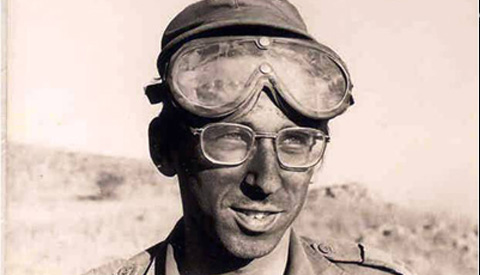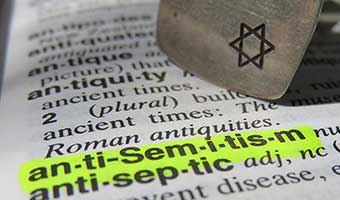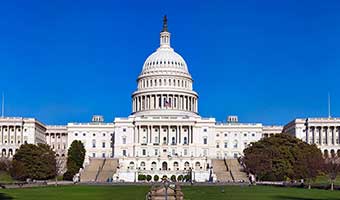
They're just about the last persons you'd expect to have a medal of honor for distinguished military service in their curriculum vitaes. Dan Engelhard could be mistaken for a Berkeley professor, longish grey hair sometimes in a pony tail, so soft-spoken you often need to lean close to hear. Dina Ben Yehuda is a combination of Marie Curie and TV's Dr. Michaela Quinn. They're both professors of medicine and hands-on physicians at Hadassah Hospital, parents to young adult children.
But each of these lives of healing was shaped by service in the Israel Defense Forces (IDF) in the Yom Kippur War. Dan Engelhard was a just-out-of-school doctor from Jerusalem. His parents had fled Germany before the war and established a small business in Jerusalem. He'd studied biology in a high school yeshiva and went to medical school in the army reserve program. He'd finished his internship and had completed the course which synchs medical education with front-line exigencies. Of course, those were theoretical. An average day as doctor for Unit 53 of the Barak Armored Brigade (188) meant dealing with soldiers with trivial sprains from jumping off tanks and sore throats from the cold nights.
For months, the Syrian army seemed to be flexing muscles on the other side of the 36-mile border line. Skirmish after skirmish. Dr. Engelhard hadn't gone home for Rosh Hashanah, and was expecting to go home to Jerusalem for Yom Kippur, but leave was cancelled, and so he stayed.
On Yom Kippur, they were anticipating still another exchange of fire with the Syrians. He, his fellow officers, and nearly all the "tankists" were fasting. Midday, the officer in charge made a startling announcement: this was no skirmish. This was war. He recommended that soldiers break their fasts and prepare for battle. "I set an example and drank a glass of water in public," said Prof. Engelhard. "I understood this was serious, although it was impossible to imagine the magnitude of the threat."
Israel had 3000 troops, 170 tanks, and 60 artillery pieces in the Golan Heights. The Syrian attack included 28,000 troops, 1400 tanks, and 100 artillery batteries.
At 1:50 pm, the Syrians surprised the Israelis with a massive attack. One hundred fighter planes attacked Israeli positions on the Golan Heights. Near Dr. Engelhard, a soldier was killed on the spot. Row after row of Syrian tanks rolled across the border towards the Israelis in the North and South of the Golan Heights.
In the Southern Heights, the Barak Brigade commander, the second-in-command, and the operations officer were killed in a stubborn attempt to hold ground. The Barak Brigade could no longer function as a cohesive force. Each surviving tank crew had to improvise to stop the advance.
The Air Force tried to provide air support, but was initially unsuccessful. Russian advisors had secretly helped create a greater anti-aircraft defense net than had protected Hanoi in the Vietnam War. Shoulder-held missiles hit tanks and impeded the support of combat helicopters. In a short time, the Barak Brigade had only 12 tanks left. They faced 600 Syrian tanks coming their way. They wouldn't yield. They knew they were the last barrier between the Syrian army and the Sea of Galilee and the valley villages of Israel.
"There were tremendous casualties from the beginning," said Prof. Engelhard. "Somehow, I managed to remain calm and treat them, using all the practice and theory I'd had in my training. We were dealing with mass casualties, not isolated wounded."
From headquarters which was behind the ever-approaching front line, he dispatched a medic in an armored personnel carrier to pick up the latest wounded and bring them for care.
In the meantime, at three am, the order came for command headquarters to move to a safer location. The Syrians were approaching fast. They were in the Southern part of the Heights, near the border.
"I knew I had to stay behind," said Prof. Engelhard. "The medic I'd sent wasn't back with the wounded. So I remained alone. I reasoned that if I heard the creak of the chains of the Syrian tanks in the distance, I would run. But I hoped the medic would return first." Night was always the worst for the soldiers. The Syrians had been supplied with night-vision equipment, but the Israelis had none.
Said Prof. Engelhard: "At seven am, I heard a motor. It was the medic and the wounded. I was able to treat them." The Syrian attack slowed. Israeli reservists, all home for Yom Kippur, mobilized quickly and reinforced the beleaguered regulars in the Golan. Four days after the war began, the last Syrian troops were pushed out of the Golan. The tank battalions pressed on within Syria.
Two of Engelhard's medics were killed. He continued treating soldiers under fire. "I witnessed such inspiring courage," he said. "Each day we'd set out knowing that not all of us would be there the next day, but we knew we couldn't afford to lose." He remained in the army, eventually earning the rank of a full colonel.
For his actions, leadership, and courage, he was awarded the Israel Defense Forces "Exemplary Conduct Medal for Outstanding Medical Services under Fire." Eventually, he returned to Hadassah Hospital. "We didn't speak of our experiences," said Prof. Engelhard. He decided to take care of sick children and did a residency in pediatrics and infectious diseases.
The beginning of the Yom Kippur War found Dina Saltz (today Ben Yehudah) in an underground bunker of the 14th Tank Brigade at the Suez Canal. "You're in charge of keeping track of the soldiers—those injured, killed or missing," said her commander, Amnon Reshef, as he left for battle. She was 20, a regimental duty officer in the tank corps. Tank by tank, she created a meticulous listing of who was serving where. This would prove invaluable.
The 14th Brigade had the impossible task of defending the Bar Lev line, widely-separated forts that couldn't hold back the concentrated Egyptian attack. The soldiers later fought a successful battle that helped turn the war around in what was called the Chinese Farm. Their brigade lost 305 soldiers, more than any other brigade. "The initial surprise and losses sometimes overshadow the valor and resourcefulness of the soldiers," said Ben Yehuda.
As soon as there was a tentative ceasefire, she went to the battlefield to gather more information on those still missing.
Before there was a special branch of the IDF to care for wounded soldiers and bereaved families, she created the position, traveling through the county to hospitals and homes. Sometimes she improvised social work. Sometimes she showed up with school supplies or a space heater. "At one home, the soldier's father refused to open the door," said Prof. Ben Yehudah. "I said I wouldn't move until he did. I was so tired that I fell asleep on the doorstep. Twelve hours later, the door opened. Inside stood a bereaved father and his children. Months had passed since his son had disappeared. He hadn't let the children leave his sight. They were locked in the apartment and hadn't returned to school."
Prof. Ben Yehuda received the Chief of Staff's Citation from Motta Gur.
In 1979, the Israel government came looking for Dan Engelhard. A medical team was being dispatched to the refugee camps in beleaguered Cambodia. They needed someone who could handle the pressure. "It was my first meeting with epidemics like malaria, outbreaks of meningitis, and many other infectious diseases impacted by immune deficiency, secondary to malnutrition," relates Prof. Engelhard. "Infections in immuno-compromised hosts became my main area of research." He has published more than 150 scientific papers in this field.
Prof. Engelhard was the first physician sent by the Israel Government and Hadassah to Kinshasa, Zaire. He headed the pediatric department of the Israeli field hospital sent by the Israel Government for medical care of Rwanda refugees, the Israeli field hospital for Kosovo refugees, and the field hospital for earthquake victims in Duzce, Turkey. In 2004, he was dispatched to Sri-Lanka after the Tsunami. "When you compare your medical career to that of colleagues abroad whom you meet at conferences in your field, you have to admit that army and national service do slow your progress as an academic physician," said Prof. Engelhard. "You reach their academic positions at a later age. But service in the Yom Kippur War taught me that you have to be clear about what matters most."
In 2005, he was in Ethiopia and invited to visit an orphanage where 400 boys and girls were dying from HIV/AIDS. They were being treated with compassion by the Mother Teresa order of nuns who minister to the dying. Engelhard was sure they didn't have to die. He'd treated tiny AIDS patients, among them Africans, at Hadassah Hospital, where he heads the pediatric AIDS unit. (You remember him from the recent visit of actress Sharon Stone.)
The American government under President George W. Bush would provide the medicine, and he would provide the HIV/AIDS expertise. The nuns would make sure the complex daily cocktails of anti-retroviral drugs were taken in full. The nuns put themselves out of a job. The dying stopped. Another order of nuns that ministers to the living replaced them. To supplement the medicine, Prof. Engelhard founded a corps of volunteer physicians, nurses, students, and medical clowns to bring art therapy and TLC to the recovering children. There are seven orphanages now, in Ethiopia and Uganda. Hadassah's "Schindler" has saved the lives of thousands of African children through this program.
Prof. Dina Ben Yehuda has been on many of the Israeli radio programs looking back on the Yom Kippur War. "I guess I felt I had something to say to the parents because I'd experienced loss, too," she said. When she was three, her older brother, Tzvika died of cancer. "My parents were Holocaust survivors, and then experienced every parent's worst nightmare. "Only when I had my own first daughter, Sheer, and held her in my arms, did I realize the impossibility of understanding the loss of these parents whom I tried to comfort." Today Sheer is a medical student at Hadassah Hospital. Dina's husband, Prof. Aryeh Ben Yehuda, is head of the newly created division of Internal Medicine. Prof. Dina Ben Yehuda is the head of Hadassah's hematology department, fighting the disease from which her brother, Tzvika died.
Her phone rings every few minutes for life and death consultation. Driven to help her patients and to produce a treatment that will defeat cancer, she rises at 5:30 am and works until 10 pm. A medication she's developed is in the process of gaining approval from the United States Food and Drug Administration.
Why would she choose a medical specialty in which patients are fighting for their lives? "Maybe the best way to feel safe is to be close to death, in the battle to defeat disease," she says. "I put the emphasis in my life on healing." Her cell phone photo gallery is full of cancer survivors and their children. With the IDF job she created, the IDF gave her a lot of latitude because it hadn't existed before. "I learned how to grow into a position and take responsibility," she says. "I was no longer the naive youngster who had graduated from the Hebrew Reali High School two years earlier."
The Yom Kippur War remains the greatest trauma of Prof. Engelhard's life, and the one he speaks least easily about. "The Yom Kippur War changed me and affected everything I did afterwards," says Prof. Engelhard, who is married and the father of four. "I was already a doctor, but seeing so much death close up taught me the value of life. I realized that all concerns are small when compared to the battle to protect life. Let the small worries go, choose life."








